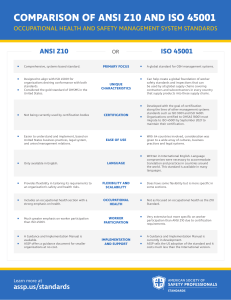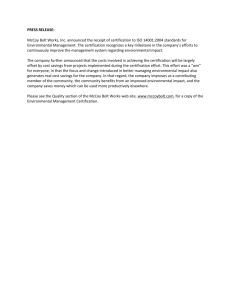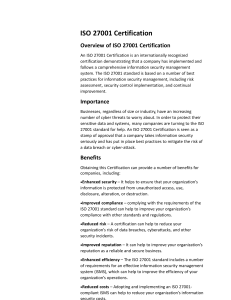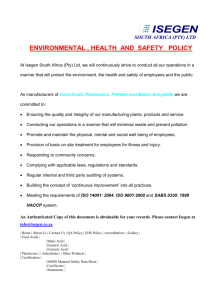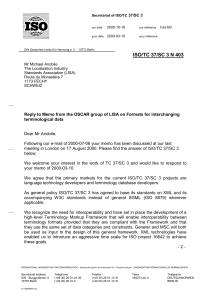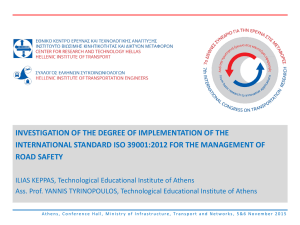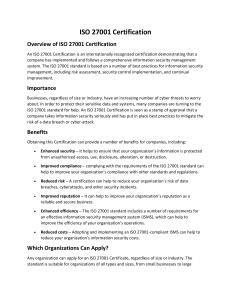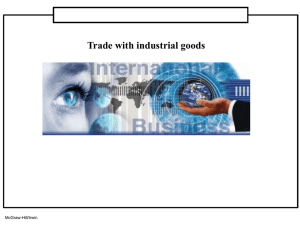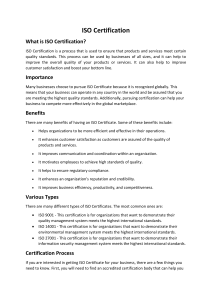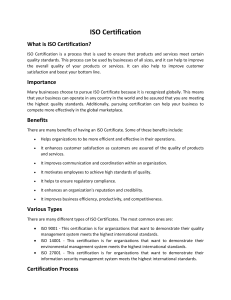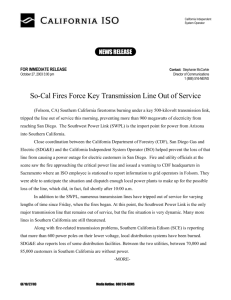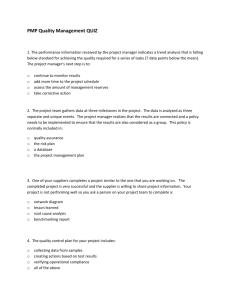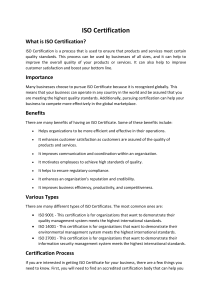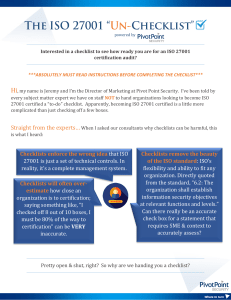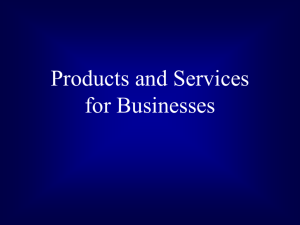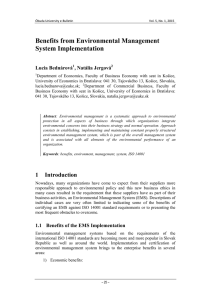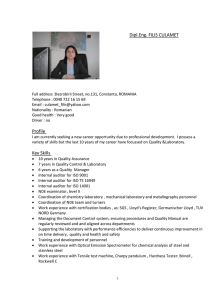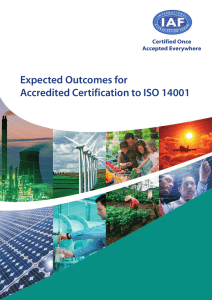New “world religion” or (and) “big business”?
advertisement
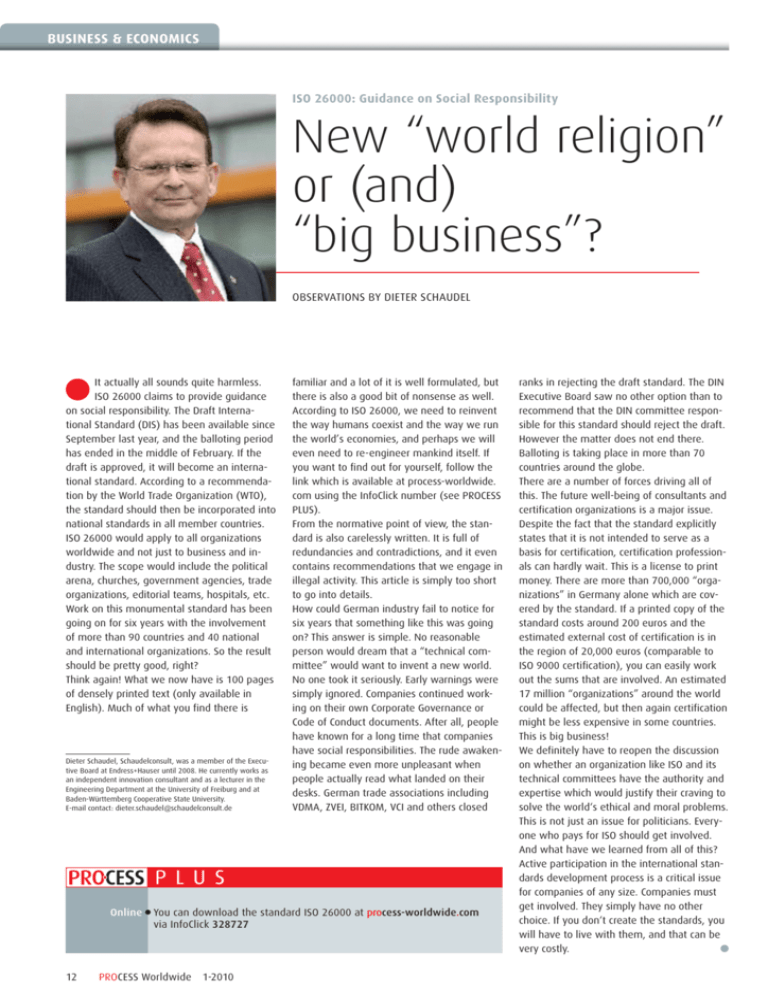
BUSINESS & ECONOMICS ISO 26000: Guidance on Social Responsibility New “world religion” or (and) “big business”? OBSERVATIONS BY DIETER SCHAUDEL It actually all sounds quite harmless. ISO 26000 claims to provide guidance on social responsibility. The Draft International Standard (DIS) has been available since September last year, and the balloting period has ended in the middle of February. If the draft is approved, it will become an international standard. According to a recommendation by the World Trade Organization (WTO), the standard should then be incorporated into national standards in all member countries. ISO 26000 would apply to all organizations worldwide and not just to business and industry. The scope would include the political arena, churches, government agencies, trade organizations, editorial teams, hospitals, etc. Work on this monumental standard has been going on for six years with the involvement of more than 90 countries and 40 national and international organizations. So the result should be pretty good, right? Think again! What we now have is 100 pages of densely printed text (only available in English). Much of what you find there is Dieter Schaudel, Schaudelconsult, was a member of the Executive Board at Endress+Hauser until 2008. He currently works as an independent innovation consultant and as a lecturer in the Engineering Department at the University of Freiburg and at Baden-Württemberg Cooperative State University. E-mail contact: dieter.schaudel@schaudelconsult.de familiar and a lot of it is well formulated, but there is also a good bit of nonsense as well. According to ISO 26000, we need to reinvent the way humans coexist and the way we run the world’s economies, and perhaps we will even need to re-engineer mankind itself. If you want to find out for yourself, follow the link which is available at process-worldwide. com using the InfoClick number (see PROCESS PLUS). From the normative point of view, the standard is also carelessly written. It is full of redundancies and contradictions, and it even contains recommendations that we engage in illegal activity. This article is simply too short to go into details. How could German industry fail to notice for six years that something like this was going on? This answer is simple. No reasonable person would dream that a “technical committee” would want to invent a new world. No one took it seriously. Early warnings were simply ignored. Companies continued working on their own Corporate Governance or Code of Conduct documents. After all, people have known for a long time that companies have social responsibilities. The rude awakening became even more unpleasant when people actually read what landed on their desks. German trade associations including VDMA, ZVEI, BITKOM, VCI and others closed P LU S Online • You can download the standard ISO 26000 at process-worldwide.com via InfoClick 328727 12 PROCESS Worldwide 1-2010 ranks in rejecting the draft standard. The DIN Executive Board saw no other option than to recommend that the DIN committee responsible for this standard should reject the draft. However the matter does not end there. Balloting is taking place in more than 70 countries around the globe. There are a number of forces driving all of this. The future well-being of consultants and certification organizations is a major issue. Despite the fact that the standard explicitly states that it is not intended to serve as a basis for certification, certification professionals can hardly wait. This is a license to print money. There are more than 700,000 “organizations” in Germany alone which are covered by the standard. If a printed copy of the standard costs around 200 euros and the estimated external cost of certification is in the region of 20,000 euros (comparable to ISO 9000 certification), you can easily work out the sums that are involved. An estimated 17 million “organizations” around the world could be affected, but then again certification might be less expensive in some countries. This is big business! We definitely have to reopen the discussion on whether an organization like ISO and its technical committees have the authority and expertise which would justify their craving to solve the world‘s ethical and moral problems. This is not just an issue for politicians. Everyone who pays for ISO should get involved. And what have we learned from all of this? Active participation in the international standards development process is a critical issue for companies of any size. Companies must get involved. They simply have no other choice. If you don‘t create the standards, you will have to live with them, and that can be ● very costly.


